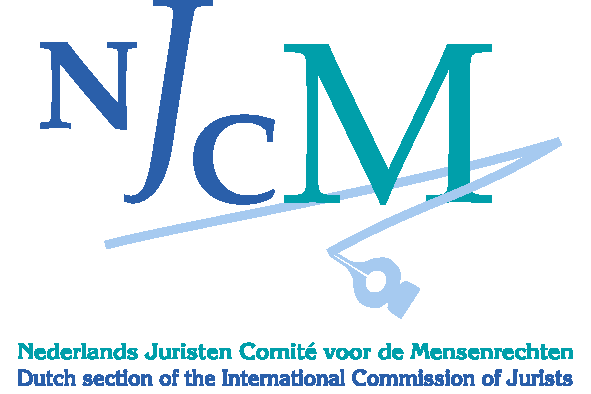
Jul 16, 2020 | Advocacy, Non-legal submissions
The ICJ and its Dutch national section today highlighted findings and recommendations of the UN Special Rapporteur on racism, racial discrimination and xenophobia, on her visit to the Netherlands.
The statement was prepared for the ICJ by its Dutch national section, Nederlands Juristen Comité voor de Mensenrechten (NJCM), for today’s interactive dialogue with the Special Rapporteur at the UN Human Rights Council, but could not be read out during the meeting due to limited time allowed for civil society statements:
“Madam Special Rapporteur,
The ICJ highly appreciates your dedicated work in the fight against racism, and welcomes your report following your country visit to the Netherlands last October. During this visit you met our colleagues from the Dutch section of the ICJ, who have prepared and join in this statement.
The ICJ shares your concern that the highest levels of political office in the Netherlands do not reflect the racial, ethnic and cultural diversity of its society. The extent in which under-representation still plays a role in the Netherlands is worrisome. This is reflected in the lack of inclusive and non-discriminatory policies.
The ICJ agrees that a full account of the history of slavery and colonialism is fundamental in Dutch education. The essence of this education must highlight how the exploitation of colonized peoples and territories normalized racial and cultural hierarchies. Racial relations in the Netherlands will not be understood in context without a fair and accurate account of history.
The ICJ commends you for addressing the systemic and institutional nature of racism within the Netherlands on an intersectional level and we call upon the government to fulfill its human rights obligations in this regard.
Madam Rapporteur could you share good practices in which governments collect data on ethnic minorities to help protect human rights while protecting against misuse of the data?
Thank you.”
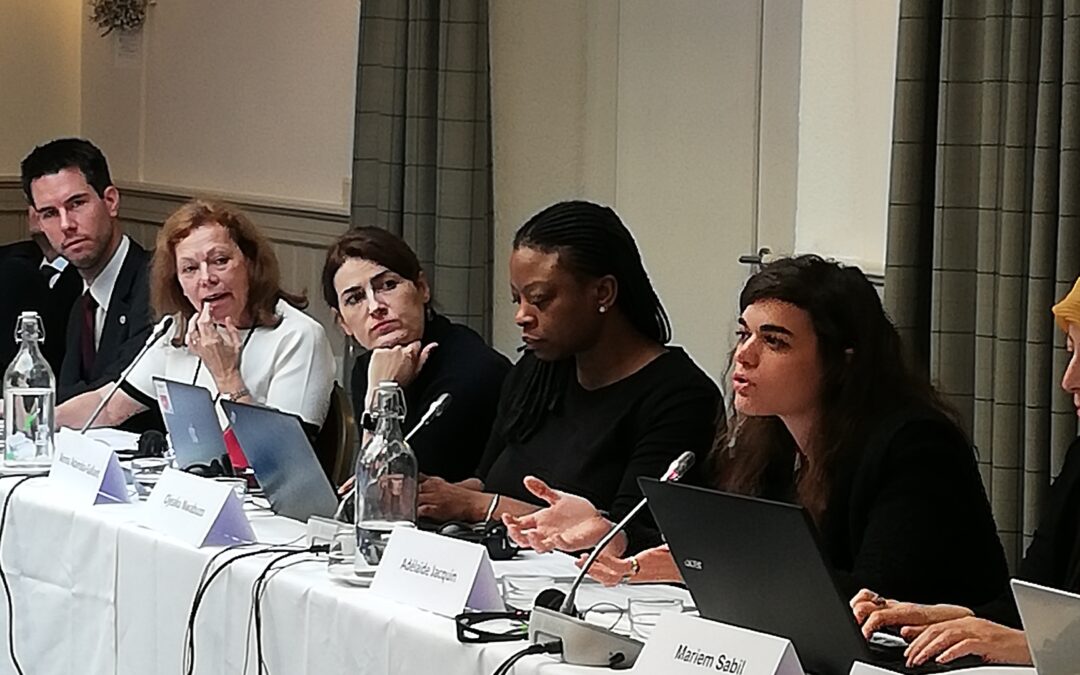
Nov 29, 2019 | Agendas, Events, News
Today, in Brussels, the ICJ held a roundtable discussion on the impact of counter-terrorism laws on specific groups, including children, and ethnic and religious groups.
The roundtable brought together 34 judges, lawyers, NGOs and other experts from countries including Germany, France, Italy, the Netherlands, Poland, Belgium, Portugal, Romania, and Spain to discuss how the rights of children and of ethnic and religious minorities can be best protected in applying counter-terrorism legislation in the courts, especially in light of the EU Directive 2017/541 on Combatting Terrorism.
This was the last of four roundtables held by the ICJ and its partner organizations between April and November 2019 in the framework of the EU funded project “Judges Uniting to Stop Terrorism with International, Constitutional and European law (JUSTICE).”
The discussion in the first session of the roundtable addressed the disproportionate impact of counterterrorism laws on ethnic and religious groups. It focused on compliance with the principle of non-discrimination, through safeguards in legislation, in the judicial application of counter-terrorism laws, and in investigation and evidence gathering.
The second session of the roundtable addressed the particular impact of counter-terrorism legislation on children, including the challenges involved in protecting the human rights of children of “foreign fighters” and ensuring the primacy of their best interests in decisions on their return to EU countries. Participants also discussed protection of the human rights of returned children of “foreign fighters” both as victims of terrorism and where they are accused of crimes of terrorism.
See the agenda here.
This workshop was carried out with the financial support of the European Union and the Open Society Foundations. Its contents are the sole responsibility of ICJ and do not necessarily reflect the views of the European Union or the Open Society Foundations.
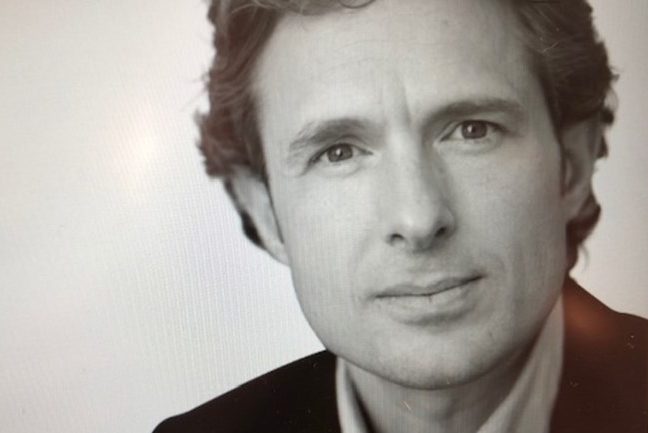
Sep 20, 2019 | News
The ICJ today expressed concern at the killing of lawyer Derk Wiersum, who was shot on 18 September 2019 in broad daylight in front of his home in Amsterdam.
Derk Wiersum was representing a key witness for the prosecution in a high-profile criminal trial against 16 members of a criminal organization, accused of five murders and an attempted murder between 2015 and 2017.
The Netherlands’ counter-terrorism agency, NCTV, is leading a team of police and prosecutors carrying out an investigation into the killing; other lawyers and officials involved in the case have been put under emergency protection.
“The killing of a lawyer, apparently in connection with his work, raises serious concern both for security of lawyers and for the rule of law. We welcome the prompt measures taken by the Dutch authorities to initiate an investigation into this crime, which should lead to the identification and prosecution of the perpetrators. It is also crucial that measures be taken to ensure the safety of other lawyers and other individuals who may be at risk,” said Róisín Pillay, ICJ Europe Programme Director.
Dutch lawyers, prosecutors and judges have issued a joint statement expressing their shock and raising concern at the threat of this attack to the country’s legal system.
Additional information:
International human rights law, including the European Convention on Human Rights to which the Netherlands is a party, requires that States take steps to protect the life and physical integrity of persons who they know or ought to know are at real risk of violence.
According to the UN Basic Principles on the Role of Lawyers, governments must ensure that lawyers are able to perform all of their professional functions without intimidation, hindrance, harassment or improper interference (principle 16). The UN Basic Principles specify that “[w]here the security of lawyers is threatened as a result of discharging their functions, they shall be adequately safeguarded by the authorities” (principle 17).
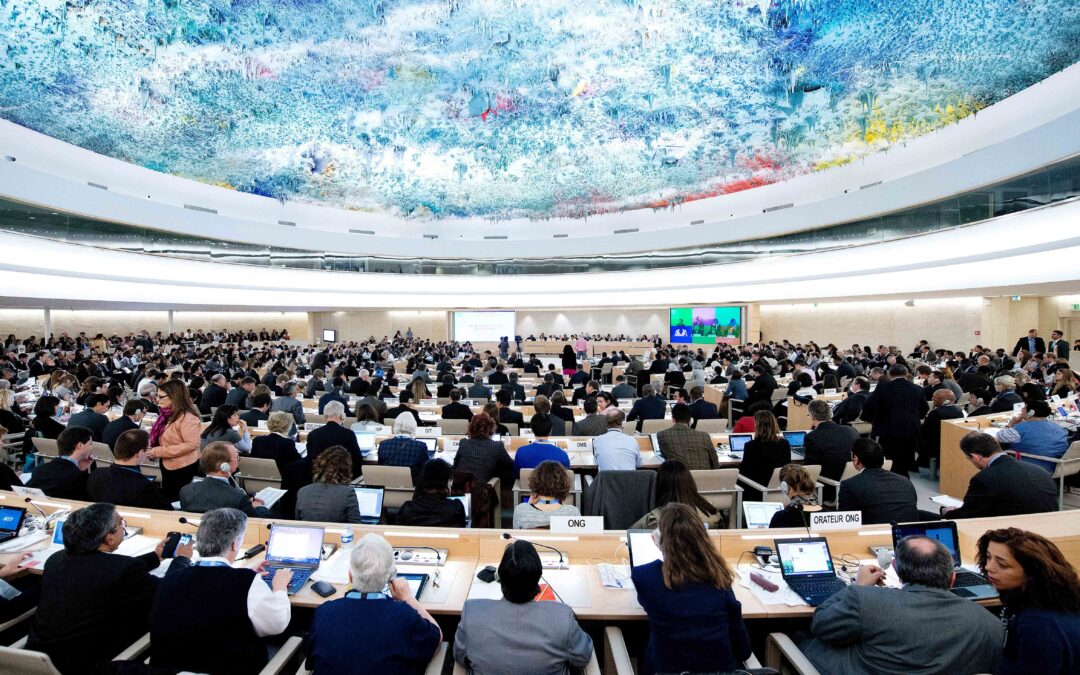
Sep 22, 2017 | Advocacy, Non-legal submissions
The ICJ spoke today at the UN, on behalf of its Dutch national section NJCM and the civic rights organization Kompass, addressing the need for the Netherlands to adopt concrete measures to implement commitments it has accepted under the Universal Periodic Review process.
The statement, delivered in the discussion by the UN Human Rights Council of the outcome of the third cycle UPR of the Netherlands, read as follows:
The ICJ makes this statement with the support of our Dutch section NJCM (Nederlands Juristen Comité voor de Mensenrechten) and civic rights organization Kompass, who together coordinated the report ‘Bringing Human Rights Home’ on behalf of 23 Dutch organizations that contributed to the UPR of the Netherlands.
Some aspects of the Netherlands’ engagement with the UPR have been positive: the Foreign Ministry as well as UPR-info organized valuable interactions in Geneva for NGOs and delegates. Dutch politicians attended the UPR sessions, setting an important precedent. The Dutch Parliament discussed the UPR process for the first time ever.
Other aspects have been disappointing. The Dutch Foreign Minister has used the term “check-box diplomacy” in reference to States that formally engage with the UPR in Geneva but do not take the necessary steps to implement human rights at home. We fear that, ironically, the phrase could well be applied to the Netherlands itself, where the Government’s “National Action Plan” does not accord with relevant OHCHR guidance, and is commonly referred to by Dutch civil society as the “No Action Plan”. Indeed, Dutch civil society have yet to see any new action by the Government designed to implement the UPR recommendations.
We therefore encourage the future Minister of Interior to put an end to this passive attitude and start investing in the national coordination of the implementation of human rights, including in relation to accepted UPR recommendations, and to engage with the Dutch Parliament on priorities and meaningful actions for the New National Action Plan.
National Action Plans and UPR recommendations are a means to an end, not an end in themselves. Human Rights and the UPR are about taking action and reforming laws, policies and practices at home, not paper pushing and bureaucracy. With the Netherlands’ accepted UPR recommendations now in hand, Dutch civil society’s message is (to paraphrase a saying from Rotterdam): “enough talk, let’s get to work!”
Responding to these and similar remarks from other stakeholders, the delegation of the Netherlands stated that the government would convene, in November, a multi-stakeholder conference on UPR follow up, consisting of plenary and workshop sessions to discuss how to follow up the process at the national level.
The delegation also noted in its final remarks that the Netherlands views this third cycle of the UPR as being about implementation, specifically referencing the ICJ/NJCM/Kompass statement, saying, “in other words, as one of the NGO speakers put it, let’s get to work!”
The statement may be downloaded in PDF format here: HRC36-OralStatement-UPR-Netherlands-2017
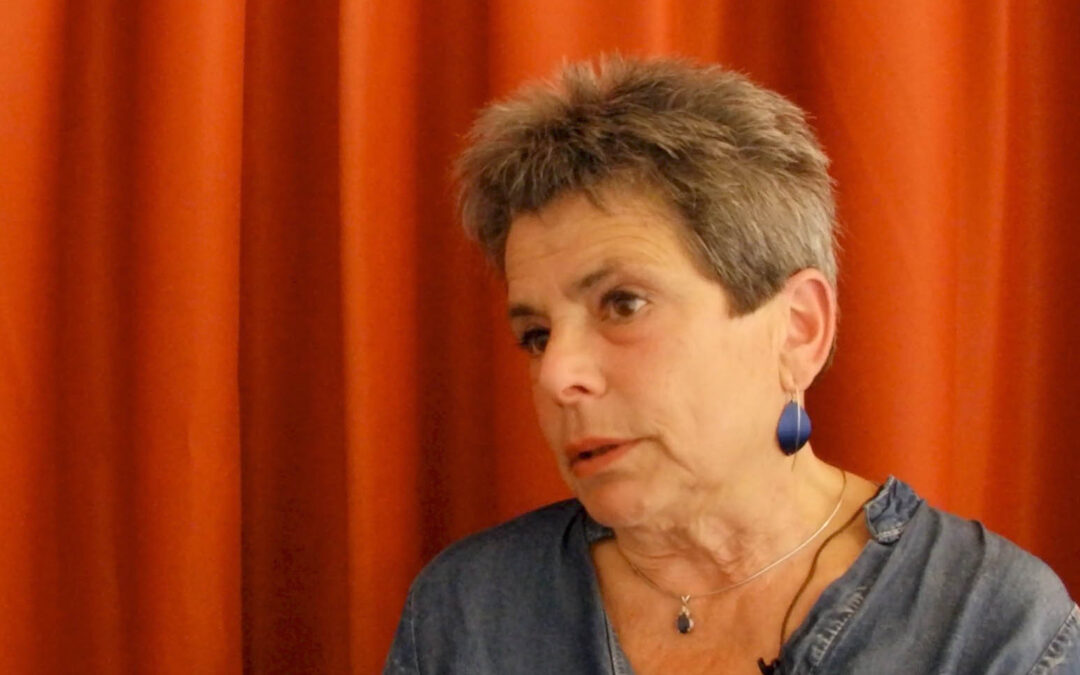
Jul 28, 2017 | Multimedia items, News, Video clips
The ICJ continues its series of profiles of its women Commissioners with an interview with Prof. Jenny E. Goldschmidt, who is currently serving her third term as an ICJ Commissioner.
She was first elected to the Commission in 2003 and re-elected in 2008 and 2013.
She is a Member of the Advisory Board of Nederlands Juristen Comité voor de Mensenrechten (NJCM), and NJCM Public Interest Litigation Group. The NJCM is the ICJ’s National Section in the Netherlands.
In this wide-ranging interview, Jenny describes how she started out her career as a lawyer by studying Constitutional law; how her interests began to focus on the haves and the have nots and from there her interest in human rights developed.
She explains how she has always combined academic research and teaching with practical work, particularly during her years as the President of the Equal Treatment Commission in the Netherlands. She also stresses the importance of working in an inter-disciplinarian manner.
For example, she explained that after academics had developed concepts of direct discrimination, indirect discrimination, and systemic discrimination, these concepts were taken on board by lawyers and have been incorporated into case law.
She gave the example of how the European Court of Human Rights and the European Court of Justice are now incorporating this type of stereotyping into their equality concept.
She emphasized human rights law must protect women and that this protection must be embodied in law.
She considered that it is vital to take cases to the Treaty Bodies and courts everywhere to establish severe measures against discrimination and domestic violence.
But human rights lawyers also need sociologists to help find the arguments that convince people and how we can influence their behavior.
“Sometimes soft law and mediation can be effective and you need other disciplines to show in which cases which instruments are most effective,” she said.
She explained that because women are not a homogenous group and because of migration and all the divisions in society, inter-sectionality has become one of the crucial challenges for women’s rights.
She believes in combining a focus on the general problems which all women face as well as taking into account that some women are even less equal than others – that women who belong to minorities, that women who are disabled, that girls are more vulnerable than the majority of women.
“I think one of the things that the disability convention tries to do by giving a specific provision for women and girls rights is that it forces the authorities, the Treaty Bodies, the national and international institutions to be aware of the fact that we are talking about women and disabled people and that we have to take two perspectives at the same time into account,” she added.
When asked what advice she would give a woman who wants to pursue a career in human rights she said: “Don’t give up! And don’t think it will be easy. Human rights world still is a man’s world.”
Jenny Goldsmith is currently Emeritus Professor of Human Rights Law, and was from 2007-2014 Director of the Netherland Institute of Human Rights at the University of Utrecht.
From 1994-2003 she was President of the Equal Treatment Commission of the Netherlands.
She is on the board of Disability Studies in the Netherlands and involved in several NGOs of disability rights, democracy, and human rights.
Watch the interview:
The series of profiles introducing the work of ICJ Commissioners and Honorary Members on women’s rights was launched on 25 November 2016 to coincide with the International Day to Eliminate Violence against Women and the first day of the 16 Days of Activism Against Gender-Based Violence Campaign.









